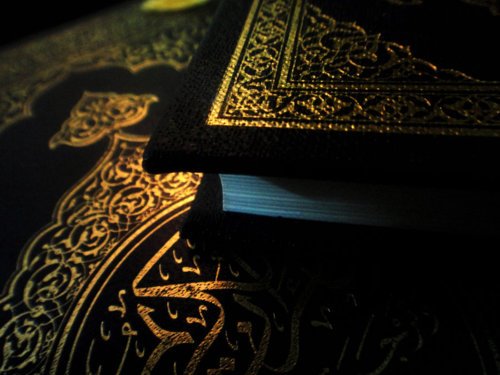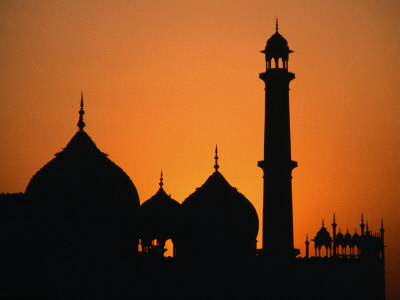By Hadrat Mawlānā Muhammad Saleem Dhorat hafizahullāh
It should be the desire of every Muslim to be in the House of Allāh ta‘ālā at all times. A Muslim should feel that if he had no commitments, he would have spent his entire time in the masjid. The heart should always yearn to be in the place most beloved to Allāh ta‘ālā. Any place beloved to Allāh will certainly become beloved to the person who has love for Allāh ta‘ālā, and Love of Allāh ta‘ālā is an essential requisite of Īmān. In one hadīth Rasūlullāh sallallāhu ‘alayhi wasallam has said: “The most beloved places to Allāh ta‘ālā are the masājid.” (Muslim)
Even when he is occupied with matters of the world, such as family, work, etc., the heart of a Muslim should always be attached to the masjid. The Prophet sallallāhu ‘alayhi wasallam has stated in one hadīth that the condition of a believer outside the masjid is that of a fish out of water. A fish obviously has no desire to be out of water and if it is taken out, will long to return, and will remain restless for as long as it is out of water. In the same hadīth, the sign of a munāfiq (hypocrite) has been described as a bird in a cage, longing to be released therefrom as soon as possible. A munāfiq anxiously waits for the salāh or speech to end, so he can leave. The point to reflect upon is that do we feel restless outside the masjid, longing to return to it, and if not, then are we not displaying the sign of a munāfiq?
This hadīth encourages us to inculcate love for the masājid, thereby visiting them frequently and remaining within for as long as possible. If for any particular reason, or due to worldly necessities, one cannot remain longer in the masjid, the desire for staying longer and the urge to return at the first opportunity should at least be present in the heart. It is indeed regrettable to witness that even when not preoccupied with necessary commitments, many Muslims, at salāh times, remain sitting at home or wandering the streets instead of attending the masājid and performing salāh. And even if they do attend, they will make a point to come as late as possible and leave immediately after salāh, only to ‘hang around’ outside with friends. Many have become so negligent that in their haste to leave, they discard the performance of sunnah mu’akkadah as well.
The sunnah salāh has been divided into two categories, mu’akkadah and ghayr mu’akkadah. The sunnah mu’akkadah are those, which Rasūlullāh sallallāhu ‘alayhi wasallam used to perform with punctuality, and exhorted the Ummah to do the same, except on a journey when there is scope for omitting them. Sunnah ghayr mu’akkadah are the non-emphasised sunnah salāh, which Rasūlullāh sallallāhu ‘alayhi wasallamused to perform on a regular basis but had omitted them at times as well, so that the Ummah could differentiate between the two. Many people never perform these at all.
Nowadays, we tend to believe that the sunnah ghayr mu’akkadah (the non-emphasised sunnah salāh) are those which Rasūlullāh sallallāhu ‘alayhi wasallam only performed occasionally. This is the definition that we have in our minds today. This is the very reason why we find a very small number of people performing the sunnah ghayr mu’akkadah. This is indeed a very grave misconception. We should make it a point to perform these with the regularity they deserve.
Coming back to the main topic, I wish to stress once again that love for the masjid (which is indicated by the desire to be present therein) is a necessary requirement. Rasūlullāh sallallāhu ‘alayhi wasallam has said: “There are seven (types of persons) whom Allāh will give protection with His Shade on the Day when there will be no shade except His Shade:…(one of them is) a person whose heart is attached to the masjid…” (Al-Bukhārī, Muslim)
If, however, such inclination does not exist within the heart, then it should be created by compelling oneself to come to the masjid at least fifteen to twenty minutes before jamā‘ah (congregational prayer) time and engage in some form of ‘ibādah. If one finds it difficult to come any earlier than the jamā‘ah time, then one should try and spend some time after the salāh. Moreover, it would also be beneficial to participate in the regular durūs (lessons of Qur’ān or Hadīth) or similar Dīnī lectures that take place in the masjid.
The benefits of visiting the masājid are numerous. Rasūlullāh sallallāhu ‘alayhi wasallam has said: “He who purifies himself in his house and then walks to one of the Houses of Allāh for performing an obligatory act (salāh), one step of his will wipe out his sins and another step will exalt him in status (in Paradise).” (Muslim)
Furthermore, just by entering the masjid with the right foot, one would be gaining the immense reward of practising a sunnah of Rasūlullāh sallallāhu ‘alayhi wasallam. By reciting the prescribed du‘ā (for this occasion) another sunnah would be accomplished. By making the intention of i‘tikāf, at the time of entering, the entire time spent within the masjid will bear the reward of i‘tikāf as well. Besides, one’s presence in the masjid (provided one does not engage in talking about worldly matters) will save one from impermissible speech and actions, which may possibly have been carried out by one outside the masjid.
It has to be remembered that to engage in anything related to worldly affairs whilst in the masjid is not allowed. The acts permissible in the masjid are those which relate to the Remembrance of Allāh ta‘ālā, such as the recitation of the Qur’ān, dhikr, listening to speeches or durūs (lessons) of Qur’ān & Ahādīth, etc. Rasūlullāh sallallāhu ‘alayhi wasallam has said: “The masājid are constructed only for the Remembrance of Allāh and salāh.” (Ibn Mājah)
One more virtue of the masjid pertains to one’s closeness with the imām when insalāh. The closer one is, the more virtuous becomes one’s salāh. Rasūlullāh sallallāhu ‘alayhi wasallam has said: “If people came to know of the blessing of (saying) adhān and (performing salāh in) the first row, they would resort to drawing lots if they had to (to secure these privileges).” (Al-Bukhārī, Muslim)
As we are unaware of the reality of the spiritual world, we have become neglectful of even such great and virtuous acts. In order to understand this, it would help to cite an example in purely materialistic terms. If for instance, a masjid was to announce that all those performing salāh in the first row would be awarded a sum as little as five pounds, for every salāh, one would witness that the first row would be filled up well before the beginning of salāh. Although not a big sum of money, but multiply it by five (for the five daily salāh) and then multiply that by seven (for the seven days of the week), it would add up to a week’s wages. This would certainly attract people to the first row. Unfortunately, we haven’t accorded even the importance and value of five pounds to the virtue mentioned by Rasūlullāh sallallāhu ‘alayhi wasallam.
Dear friends, when we come to the masjid, we should endeavour to obtain a place in the first row. We have plenty of time to talk and gossip outside salāh times. Leave all the mundane activities for another time and come and sit as close to the imām as possible. We should realise that there is a force keeping us away from this reward (and other such rewards) and this is the evil force of shaytān. We have to learn to fight shaytān and endeavour to get closer to Allāh ta‘ālā.
INTENTIONS FOR GOING TO THE MASJID
Many intentions can be made when going to the masjid. Remember, for each intention a separate reward will be attained. Listed below are some possible intentions that can be made.
1. To perform salāh.
2. For going to the House of Allāh ta‘ālā.
3. To obtain reward for the time spent while awaiting the congregation of thesalāh.
4. For the limbs to be safeguarded from sins.
5. For nafl (optional) i‘tikāf.
6. To remember Allāh ta‘ālā in seclusion.
7. To meet fellow Muslim brothers.
8. For the reward of salām (greeting other brothers).
9. For reciting the du‘ā when entering and leaving the masjid.
10. For reciting the Qur’ān.
11. For an opportunity for amr bil ma‘rūf and nahy ‘anil munkar (to enjoin what is right and forbid what is evil).
May Allāh ta‘ālā forgive our sins and overlook our shortcomings and may He grant us the correct understanding of Dīn and His Pleasure. Āmīn.
© Islāmic Da’wah Academy
• Please forward this message on to all your contacts •

